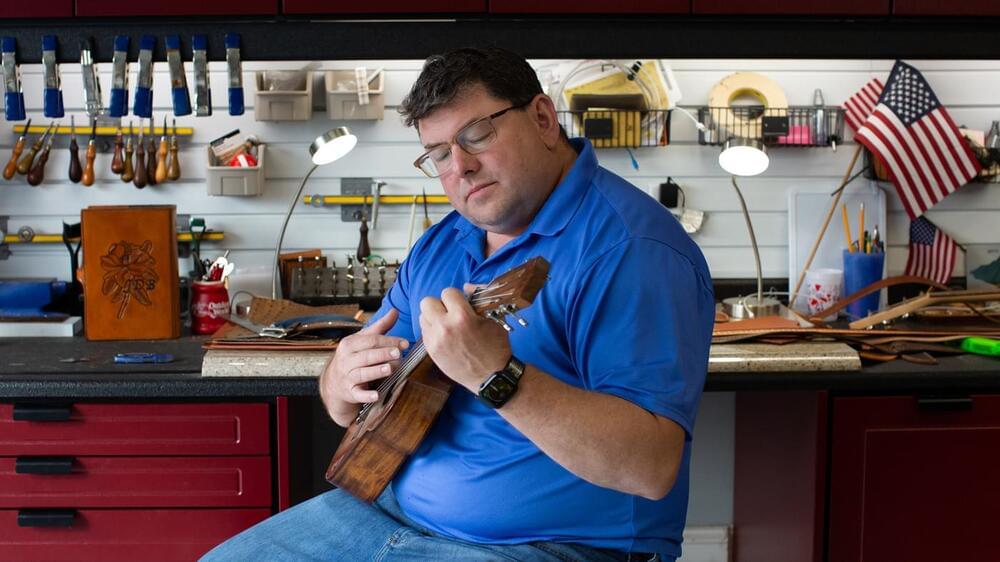When Michael Schneider’s anxiety and PTSD flare up, he reaches for the ukulele he keeps next to his computer.
“I can’t actually play a song,” says Schneider, who suffered two serious brain injuries during nearly 22 years in the Marines. “But I can play chords to take my stress level down.”
It’s a technique Schneider learned through Creative Forces, an arts therapy initiative sponsored by the National Endowment for the Arts, in partnership with the departments of Defense and Veterans Affairs.
Arts therapies appear to ease brain disorders from Parkinson’s to PTSD. Now, artists and scientists have launched an effort to understand how these treatments change the brain.






